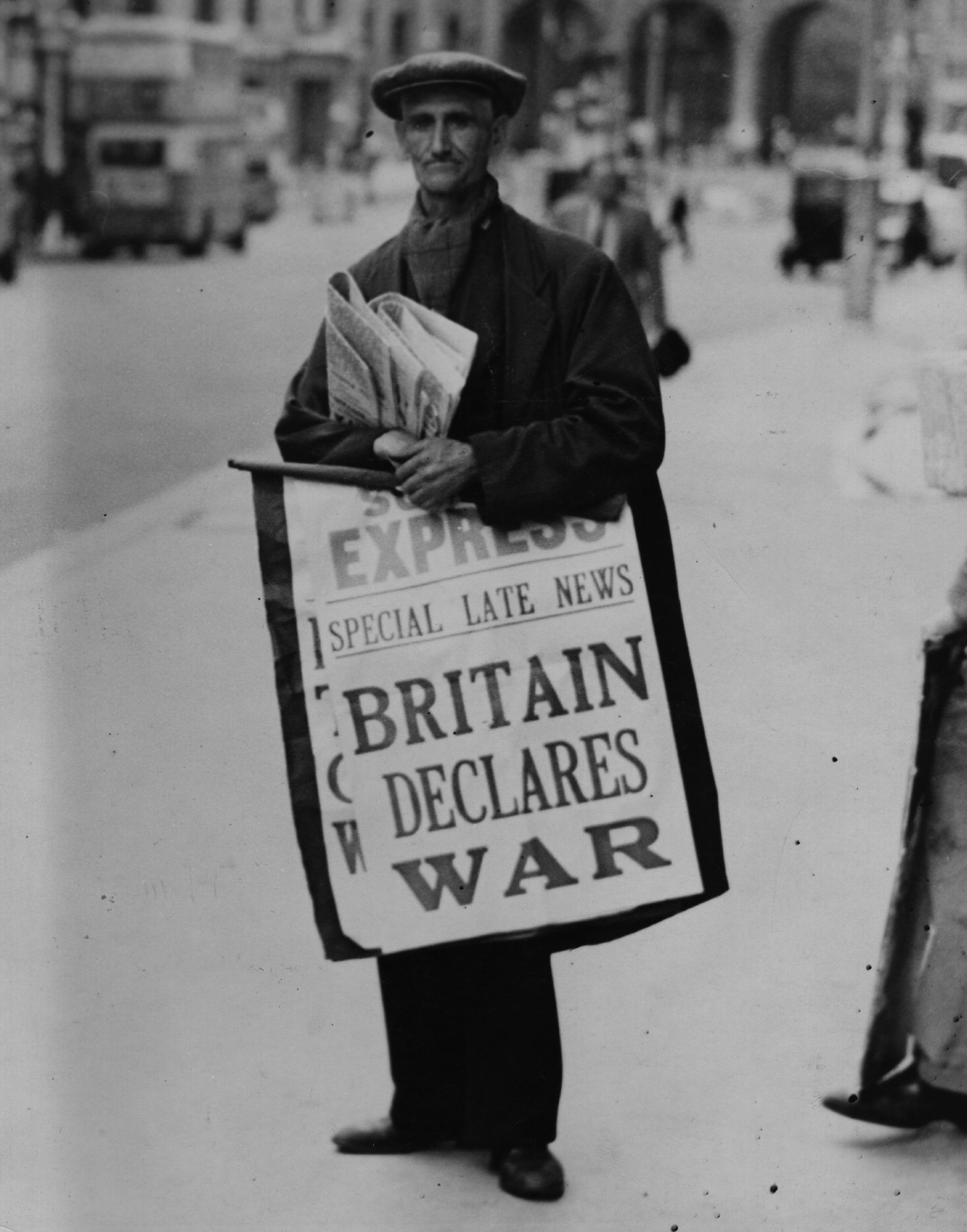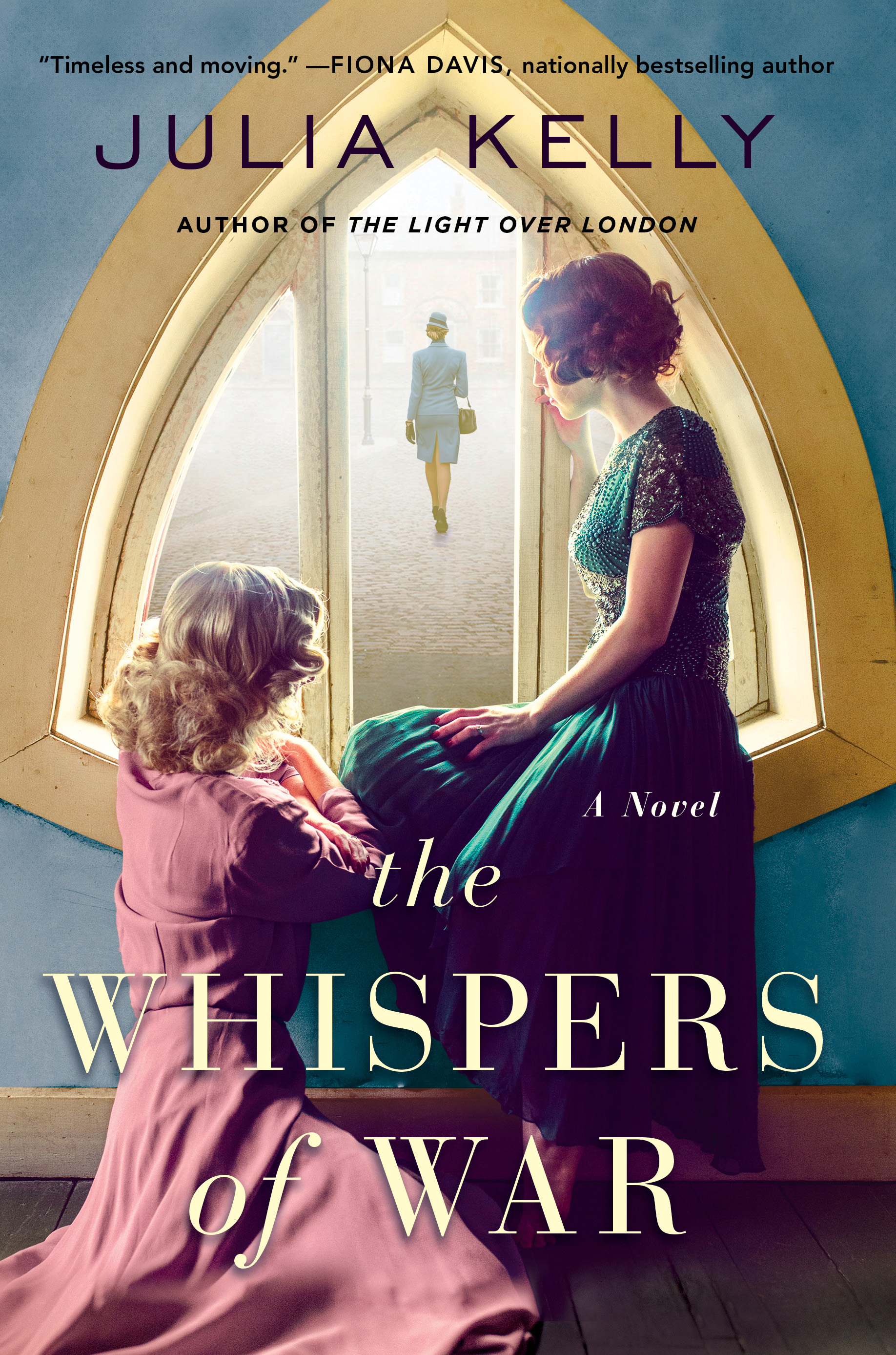
On the eve of the war that would cost the lives of more than one million British military personnel, change the path of the empire, and reshape the skylines of cities from London to Glasgow, people across the U.K. opened up their diaries and sat down to write.
Founded in January 1937 as an “anthropology of ourselves,” the project known as Mass Observation was meant to record the mundane details of British life across every level of class and location. The three founders recruited low-paid researchers through a letter announcing the project in the New Statesman. These observers were tasked with recording the public’s behavior in places like pubs and war memorials, as well as people’s attitudes about topics as varied as football pools, eating and facial hair.
The founders of Mass Observation couldn’t have known when they started the project that they’d soon be uniquely positioned to capture the hopes and fears of a nation at war. By the end of the summer of 1939, however, it was clear that Britain was on the brink of war with Germany. World War II wasn’t only fought on the battlefields of Europe, but also on the Home Front, and the stories of those who stayed behind in Britain live on in vivid detail thanks to the diaries produced as part of Mass Observation.
The hundreds of unpaid volunteers who participated filled out a series of questionnaires and made regular diary entries. They wrote about the intimate details of their lives as well as their thoughts and feelings about the world around them. How much of their lives the diarists left behind varies wildly. Some wrote regularly, while others only stuck with the project for a few weeks. The result is an intimate portrait of British life that is also completely individual.
“It is the personal accounts that will always fascinate us most,” Simon Garfield wrote in the introduction of his book We Are At War: The Remarkable Diaries of Five Ordinary People in Extraordinary Times, which used the Mass Observation archive at the University of Sussex to follow five diarists throughout the early years of World War II.
The diaries’ window onto the war began even before the battles did. With hindsight, it’s surprising that, up to the deadline for him to withdraw his troops from Poland, not everyone was convinced that Hitler would actually provoke another war. Yet on Sept. 3, 1939, Tilly Rice wrote, “I myself have felt all along that war would be possibly be averted at the last moment…I haven’t felt swayed by the alternate waves of pessimism and optimism that affect those around me.”
Get your history fix in one place: sign up for the weekly TIME History newsletter
Rice, who would have to evacuate her home in Surrey for Cornwall, wrote again after Prime Minister Neville Chamberlain’s radio announcement announcing that Britain was at war. She wrote that the national anthem followed Chamberlain, and her family all sat in silence before retreating to their own rooms, no doubt stunned at the news.
Ellen Porter, an evacuation officer based in London, wrote about an air-raid siren that sounded over the capital the day of the declaration: “I go to the basement, where I have previously been working with four others. Some of us try on our gas masks and adjust straps…We sit there keeping perhaps rather self-consciously calm and cheerful.”
Despite the initial efforts to prepare Britain for attack, the period until spring of 1940 has become known as the “Phoney War” because little seemed to happen before Hitler’s blitzkrieg across Europe. It is no surprise then that the diarists spend time detailing domestic matters. We learn about the rules and regulations forcing people to carry their gas masks with them everywhere—and how many adults began to leave them behind when the feared Luftwaffe bombers didn’t immediately appear. Some diarists wrote about the difficulties of making their way in the dark of the blackout, a ban on all light pollution to try to deter those elusive air raids.
Christopher Tomlin, a paper salesman from Lancashire, wrote about the short-lived attempt by the government to shut down movie theaters at the beginning of the war. “BOREDOM!” he wrote in all capitals. (This is the same man who, on April 8, 1940, wrote “Hooray, the war begins at last!” about the British navy’s attempts to push back German ships off the coast of Norway.)
Taken together, the Mass Observation diaries give a good sense of the pendulum of public opinion. If one were to delve into the archive, held by the University of Sussex, it would be possible to track the fortunes of Britain throughout the war.
When Germany launched the months-long bombing campaign on London and other cities that would be known as the Blitz, in 1940 and 1941, a freelance writer from Slough named Maggie Joy Blunt wrote, “Raids on London every night. Homes destroyed, death to hundreds. The city in flames.” Yet she added, “There is something in the Britisher when his life, his heritage or whatever is threatened which refuses to be beaten, or perhaps it’s the refusal to accept the idea of defeat.”
It was this attitude that carried people through six long years of war until Victory in Europe—or V-E—Day on May 8, 1945. With the war officially over, one diarist recorded seeing signs in shop windows advertising goods like batteries that had become particularly hard to come by during the war, and the ration on petrol began to ease.
However, some like George Taylor, an accountant in Sheffield, remained skeptical. On May 9, 1945, one day after the war officially ended, he took down his blackout curtains and packed them away in the loft “ready for the next war.
“If we do leave this house before then, they will go along with the fixtures,” Taylor wrote. “I hope, however, that we shall be able to forget their existence.”

Julia Kelly is the author of the novel The Whispers of War, available now from Gallery Books.
More Must-Reads from TIME
- Cybersecurity Experts Are Sounding the Alarm on DOGE
- Meet the 2025 Women of the Year
- The Harsh Truth About Disability Inclusion
- Why Do More Young Adults Have Cancer?
- Colman Domingo Leads With Radical Love
- How to Get Better at Doing Things Alone
- Michelle Zauner Stares Down the Darkness
Contact us at letters@time.com